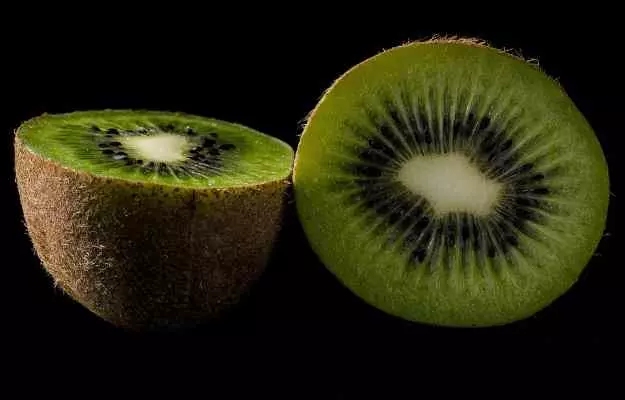Kiwifruit, often abbreviated as kiwi is an oval berry obtained from kiwi plant, Actinidia deliciosa.
It has a tart and sweet taste which makes it the perfect ingredient in both sweet and savoury recipes. Kiwi seeds add an extra crunch to fruit salads that is simply refreshing.
The whole kiwi fruit is edible, including kiwi skin, pulp and seeds. Though some people are not really fond of its skin, eating it whole has been found to be much more nutritious.
Kiwi vines best grow under tropical conditions and can’t survive lower temperatures, however, temperate varieties of kiwi are also grown in colder regions.
Also known as Chinese gooseberry, this fruit is native to China, which is the largest producer of kiwis in the world. In India, kiwi is cultivated in Himachal Pradesh, Uttar Pradesh, Jammu & Kashmir, Sikkim, Karnataka and Kerala.
Kiwis are a storehouse of healthy nutrients and the Chinese have been using kiwi as a tonic for children and women after childbirth.
Kiwis can also be used to treat cardiovascular disorders, regulate blood pressure and it prevents macular degeneration. The antibacterial and antioxidant properties of this fruit make it a blessing for health.
Some basic facts about Kiwi:
- Scientific name: Actinidia deliciosa
- Family: Actinidiaceae, a small family of flowering plants.
- Common name: Kiwi, kiwifruit. It was originally called the “Chinese Gooseberry.”
- Common Hindi name: Kiwi phal
- Native Region and Geographical Distribution: This fruit was originally cultivated in the North-Central and Eastern parts of China. After China, New Zealand started to cultivate this fruit for commercial purposes. Later it became popular with the British and American forces during world war 2. Kiwis are now being cultivated in many parts of the world.
- Fun fact: Kiwifruit is known as the “nutritional all-star”according to a stud. As per a study done in Rutgers University, this fruit provides the best nutrients among 21 most commonly eaten fruits.













